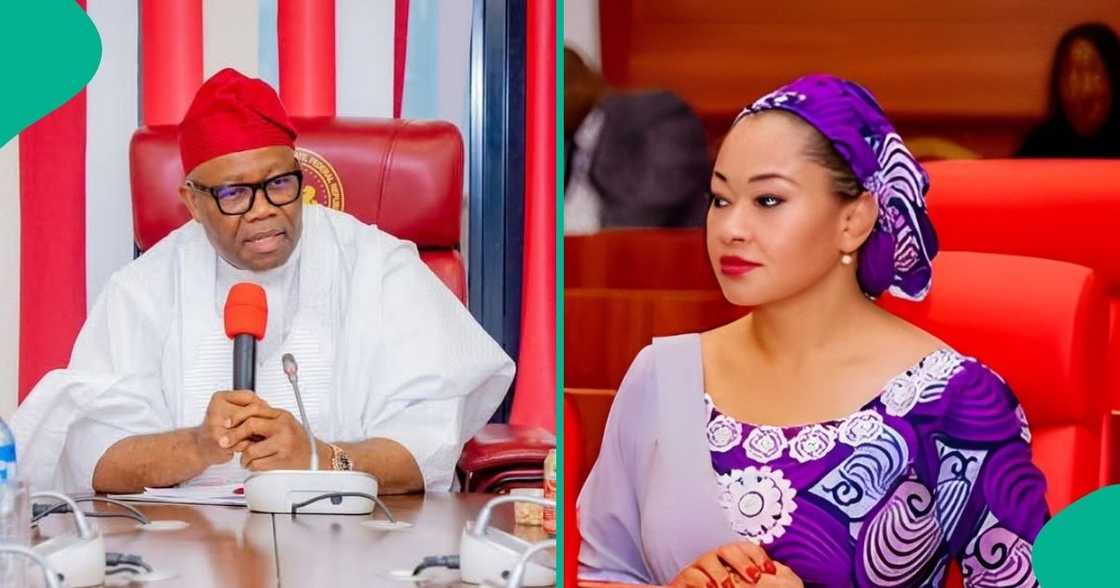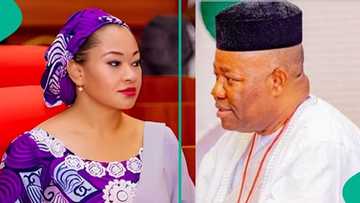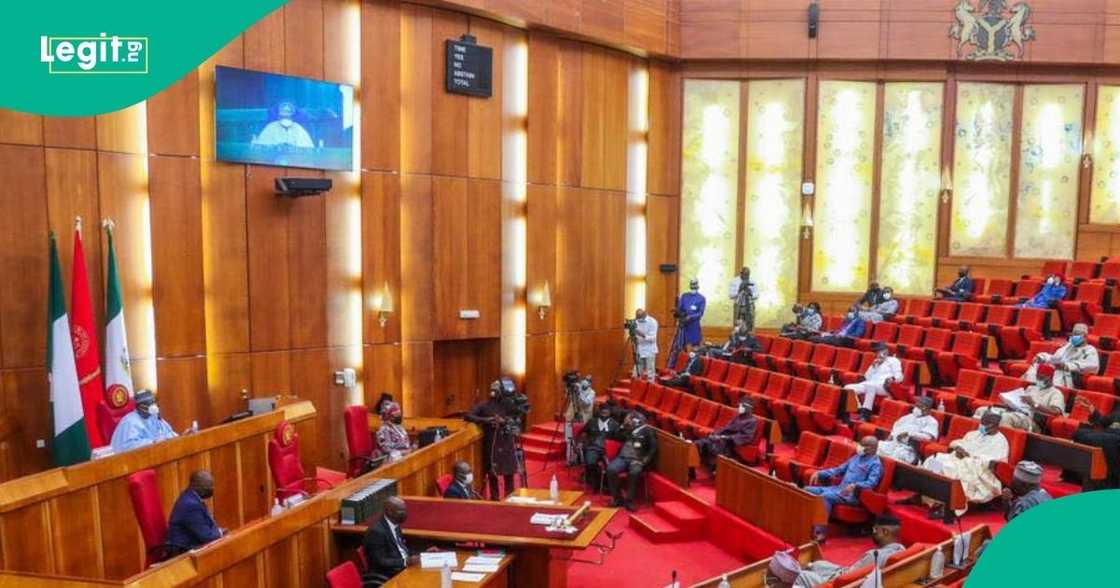Nigeria Ranks 178th in Female Representation: Will Akpabio-Akpoti Debacle Finally Spark Change?
- The confrontation between Senate President Godswill Akpabio and Senator Natasha Akpoti-Uduaghan highlights the systemic barriers women face in Nigerian politics
- Despite a 2022 Federal High Court ruling mandating the enforcement of the National Gender Policy, progress remains slow due to political inertia, cultural biases, and economic constraints
- Examples from Rwanda and Senegal show that strong political will and legal enforcement of affirmative action can significantly boost female representation in governance
CHECK OUT: Education is Your Right! Don’t Let Social Norms Hold You Back. Learn Online with LEGIT. Enroll Now!
The recent confrontation between Senate President Godswill Akpabio and Senator Natasha Akpoti-Uduaghan has again spotlighted women's systemic challenges in Nigeria's political arena.

Source: Twitter
This incident underscores the urgent need to fully implement the 35% affirmative action policy to ensure equitable representation of women in governance.
Legit.ng recalls that during a Senate plenary session on February 20, 2025, a dispute over seating arrangements escalated into a heated exchange between Akpabio and Akpoti-Uduaghan.
The session became disorderly as both lawmakers engaged in a verbal confrontation, highlighting underlying tensions regarding gender dynamics within the legislative chamber.

Read also
"I am not afraid of you": Natasha Akpoti clashes with Akpabio over seat relocation, video trends
This was not an isolated incident. In July 2024, Akpabio made a controversial remark towards Akpoti-Uduaghan, comparing her conduct to that in a nightclub.
He later apologised, stating,
"Distinguished Senator Natasha, I want to apologise to you."

Source: Twitter
These confrontations are symptomatic of a broader issue: the persistent marginalisation of women in Nigerian politics.
Despite the National Gender Policy's provision for 35% affirmative action in appointive positions since 2006, implementation has been lacklustre.
Challenged by the Nigerian Women Trust Fund (NWTF) and other civil society organisations, a landmark ruling by the Federal High Court in Abuja on April 6, 2022, mandated the government to enforce this policy, yet progress remains minimal.
Reacting to these shortcomings, foremost columnist and public affairs analyst Jide Ojo blamed political inertia, cultural biases, and economic constraints.
In a recent interview, he said,
"Most men in decision-making positions have wives and daughters, yet they fail to act against gender discrimination."
Nigeria's global standing regarding female representation is concerning. The country ranks 178th out of 182 in terms of women's participation in national parliaments.
This statistic reflects deep-seated structural barriers that hinder women's full participation in governance.
"We are at the very rock bottom of the global gender participation index. Even countries under military rule fare better than Nigeria," he added.
The Confrontation: A microcosm of a larger issue
The clash between Senate President Akpabio and Senator Akpoti-Uduaghan is emblematic of the systemic challenges confronting women in Nigerian politics.
Such incidents not only deter women from political participation but also perpetuate a culture of gender-based discrimination and intimidation.
Without a deliberate and enforced policy to protect and promote women's roles in governance, these confrontations will continue to undermine the nation's democratic ideals.
It's imperative to foster a political environment where women can engage without fear of intimidation or discrimination.

Read also
FG bans 60,000-litre fuel tankers, others from Nigerian roads, gives date for implementation
Implementing the 35% affirmative action is not merely a policy directive but a necessary step towards achieving genuine gender equality in Nigeria.
Learning from global exemplars
Countries like Rwanda and Senegal offer compelling evidence of the transformative impact of affirmative action.
Rwanda's constitutional mandate of a 30% quota for women in all governmental decision-making bodies has resulted in women occupying 64% of parliamentary seats as of 2013.
Similarly, Senegal's gender parity law, which requires political parties to nominate equal numbers of men and women, increased female parliamentary representation from 22.7% to 42.7% by 2012.
These examples demonstrate that with genuine political will and robust enforcement mechanisms, affirmative action can redress gender imbalances in governance.
Affirming the assertion, Dr Eno-Obong Akpan stated that advocacy must continue, and women must not relent in letting the movement see the light of day.
The doctor of law said,
"We are still doing our advocacy. We're not going to relent to ensure that the judgment of the federal high court is implemented.

Read also
Breaking: US breaks silence as allegation swirls over USAID's alleged funding of Boko Haram
Nigeria's path to a more inclusive and representative political landscape demands deliberate actions. The confrontation between Senate President Akpabio and Senator Akpoti-Uduaghan is a stark reminder of the urgent need to implement 35% affirmative action in Nigeria.
Embracing and actualising the 35% affirmative action will not only rectify gender imbalances but also enrich the nation's democratic processes.
Nigerian women still chasing 35% affirmative action
Legit.ng had earlier reported that the off-cycle polls in Bayelsa, Kogi and Imo states missed an opportunity to produce women with leadership roles.
This pattern echoes the discouraging trends observed in the previous general election and the composition of President Bola Tinubu's cabinet.
The Nigeria Women Trust Fund (NWTF) is urging the government to actively prioritise and embrace the inclusion of women in key decision-making positions.
PAY ATTENTION: Сheck out news that is picked exactly for YOU ➡️ find the “Recommended for you” block on the home page and enjoy!
Source: Legit.ng



